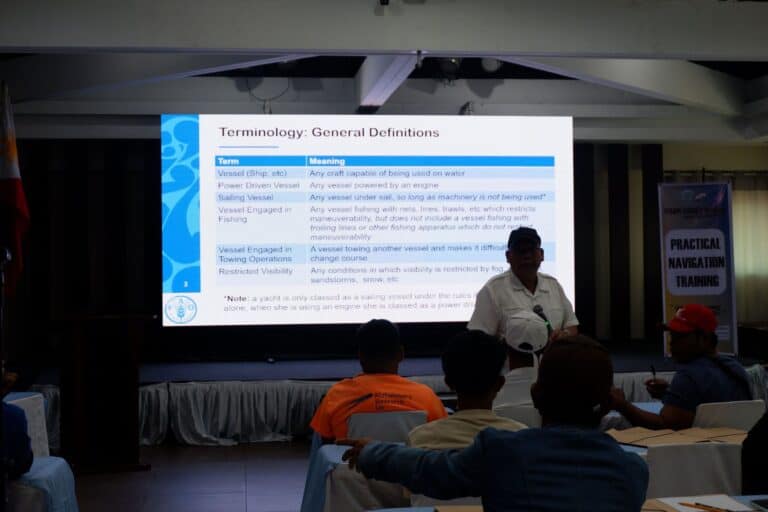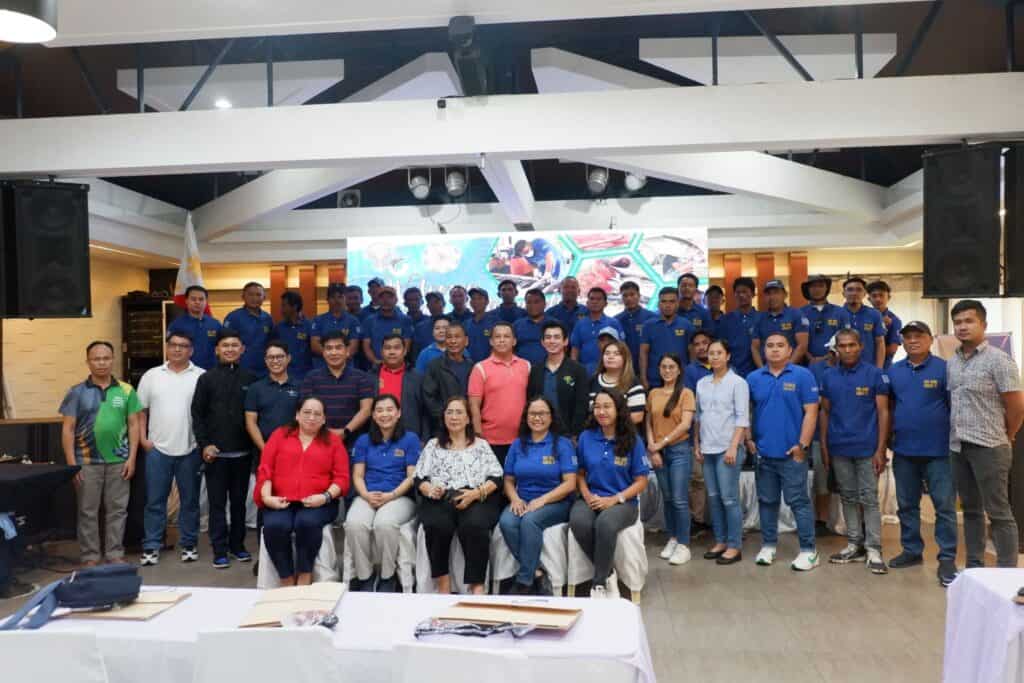
The fifth batch of officers and crew from commercial and municipal tuna handline fishing vessels participated in the Capacity Building program from April 29 to May 2, 2024, at the East Asia Royale Hotel. This initiative, aimed at enhancing sustainable fisheries management, responsible fishing operations, proper fish handling onboard, accurate catch reporting/documentation, and practical navigation skills, was organized by the Bureau of Fisheries and Aquatic Resources (BFAR) in collaboration with the SOCSKSARGEN Federation of Fishing and Allied Industries, Inc. (SFFAII).
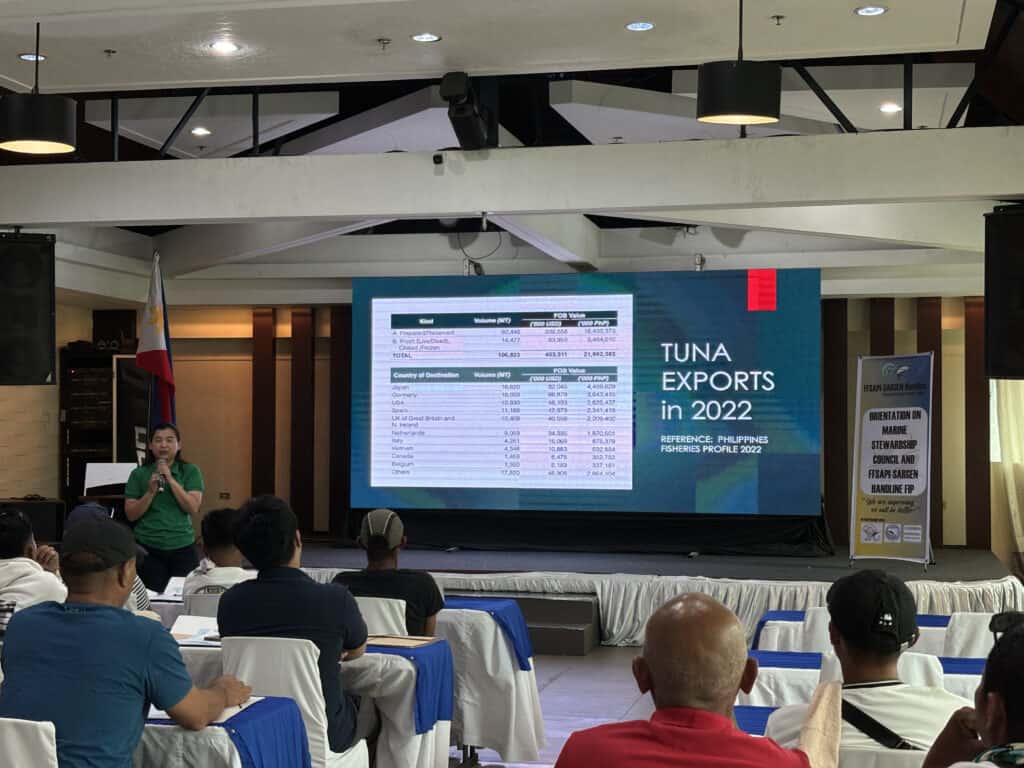
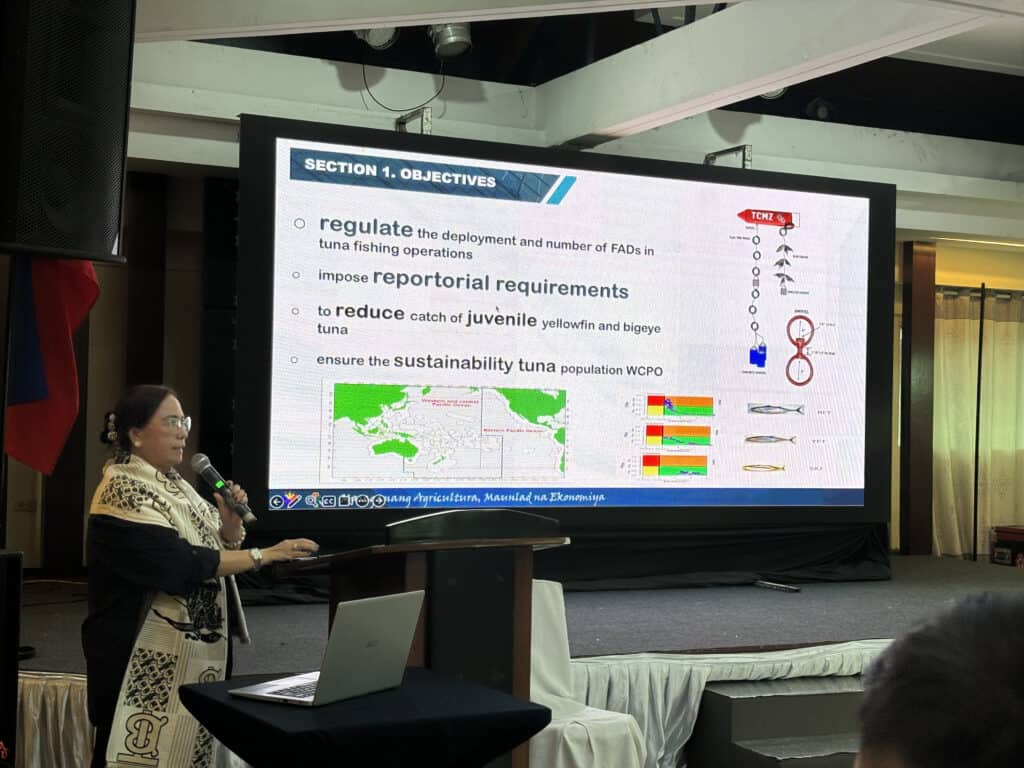
On the first day, the Orientation on the Marine Stewardship Council’s (MSC) and FFSAPI-Sargen Handline FIP was presented, detailing the process to obtain an MSC Certificate. The three key principles for certification were emphasized: sustainable target fish stocks, minimizing the environmental impact of fishing, and effective management. The importance of cooperation was also highlighted to ensure the conservation of marine ecosystems, the protection of vulnerable species, and the long-term sustainability of the seafood industry. Additionally, updates on the ongoing FIP were shared with the participants.
Another crucial topic covered in the project was the orientation on BFAR regulations and WCPFC Conservation and Management Measures (CMMs). Dr. Alma C. Dickson, Fishing Technology and Management Consultant at BFAR-CFD, discussed the pertinent policies, regulations, and fisheries administrative orders. She highlighted the importance of handline fishing boat registration to secure necessary permits and clearances, explaining that Philippine handline fishing boats can only operate in international waters with the appropriate permits. Compliance with safety, manning, and communication standards is also mandatory.
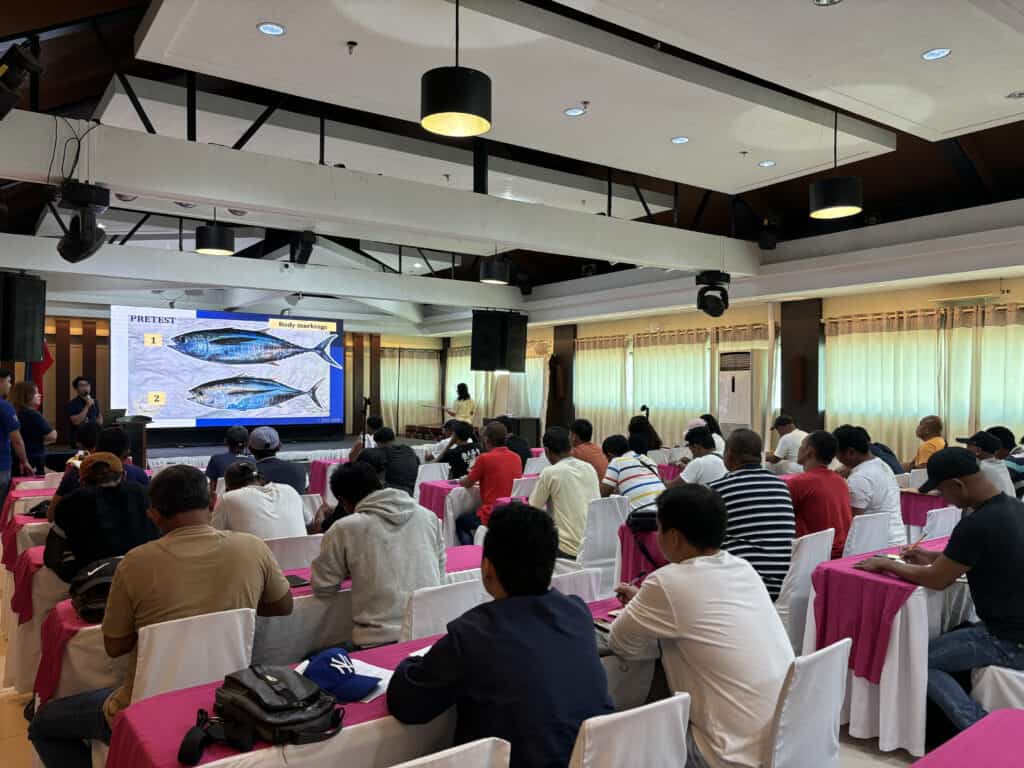
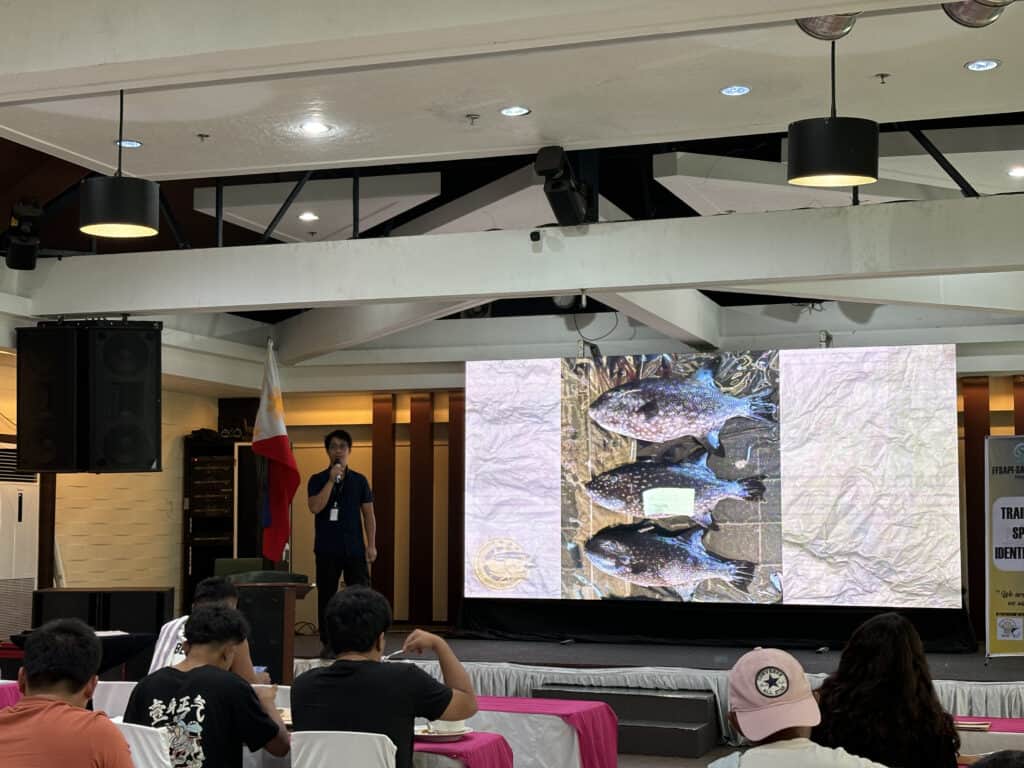
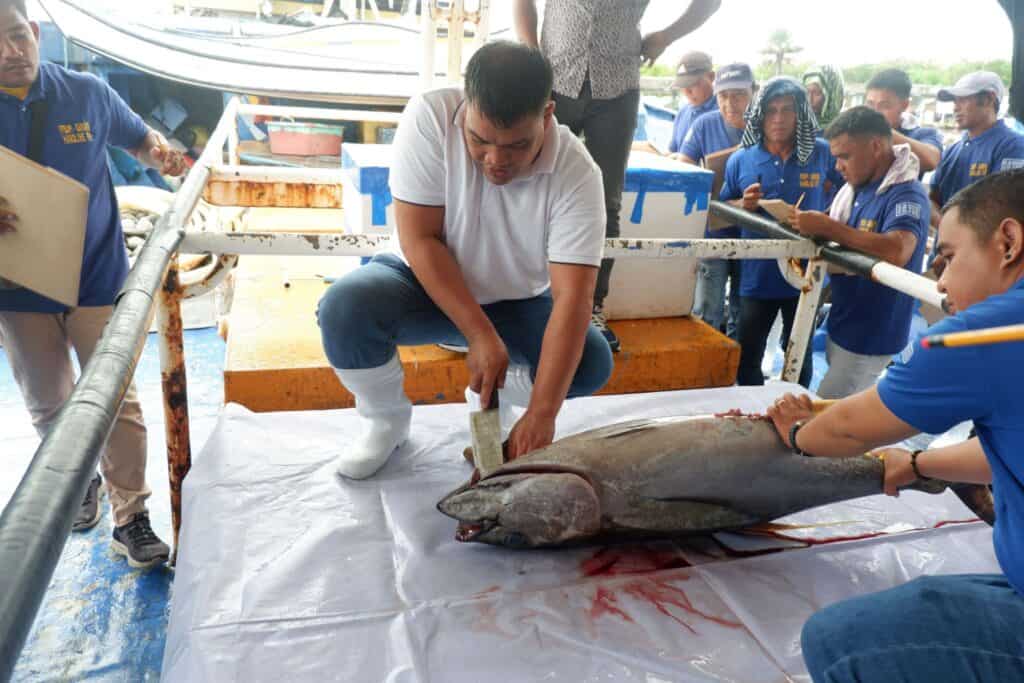
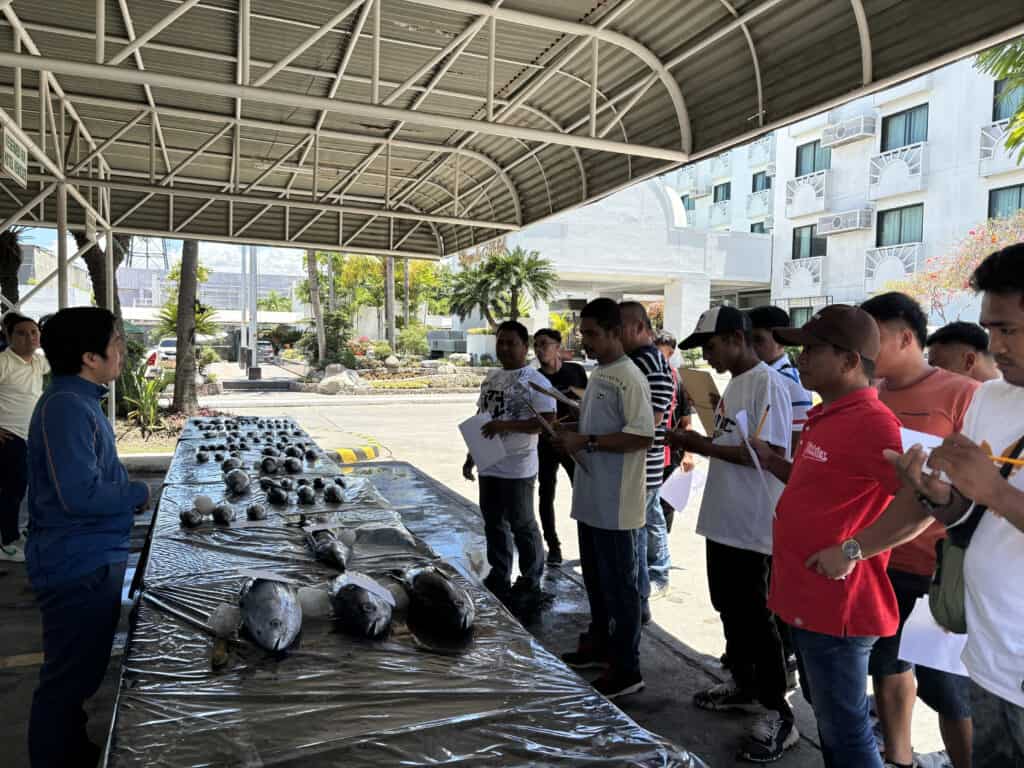
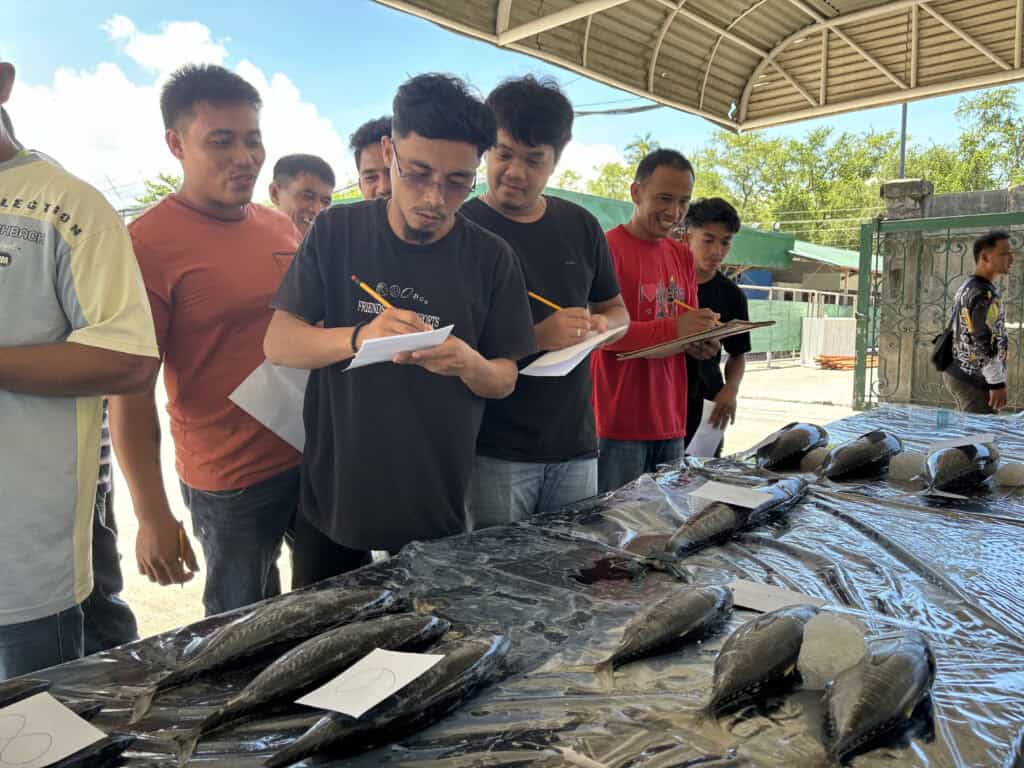
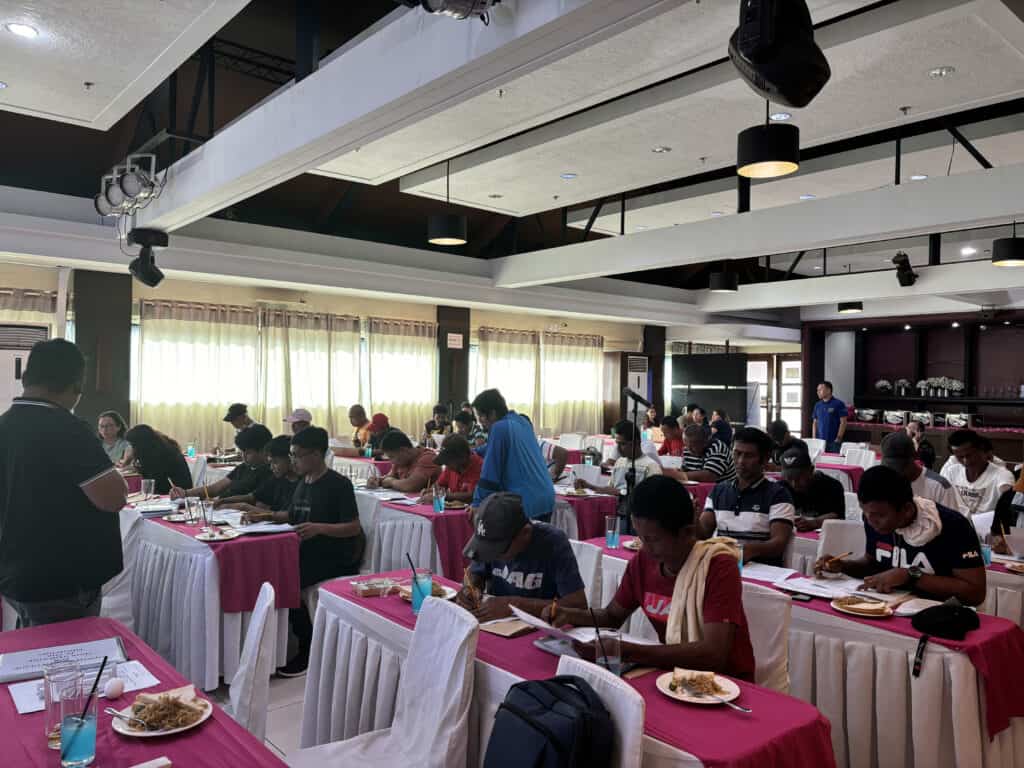
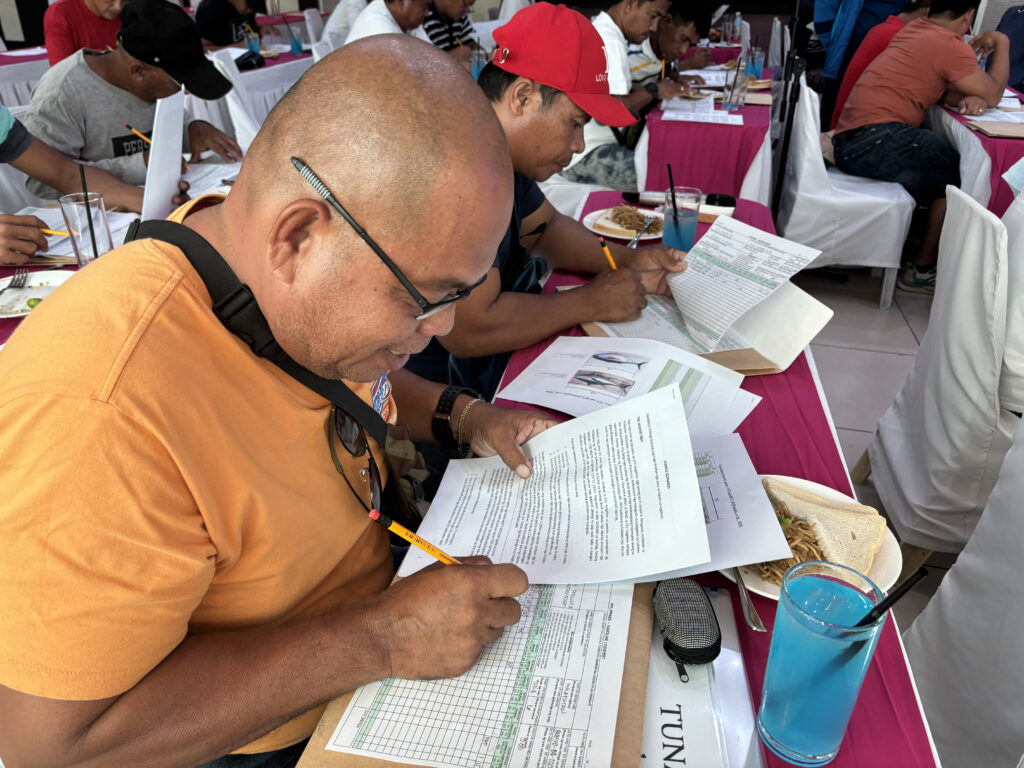
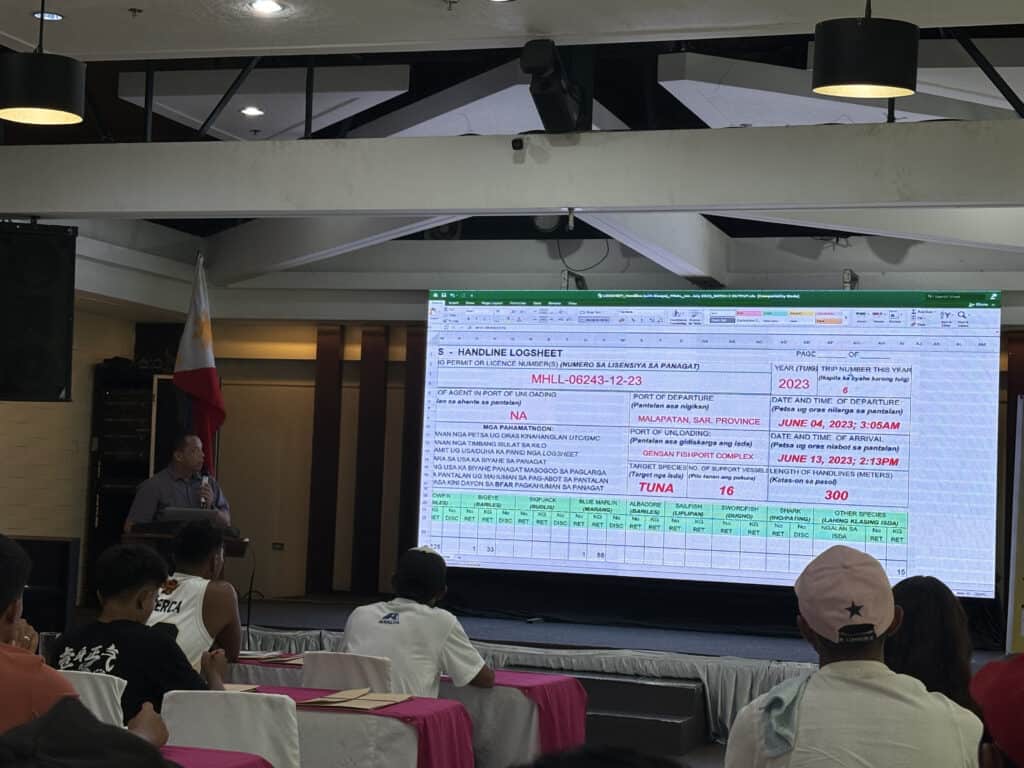
On the second day, participants listened to theoretical lectures on Proper Tuna Handling and then traveled to the Gensan Fishport Complex to apply these principles to the handling and preservation of tuna species onboard. The training aimed to help fishermen understand that their responsibilities extend beyond catching tuna; they play a vital role in protecting consumers and ensuring the integrity of the seafood supply chain.
Training Facilitator Mr. Rey Caballero, BFAR RFO12-RFTFCD Fisheries Regulatory Officer, discussed proper tuna handling, shelf-life, and Good Handling and Hygiene Practices onboard fishing vessels. He demonstrated the correct procedures for handling the catch from the moment it is hooked, to when it is landed, cleaned, chilled, and stored. By equipping fishers with the necessary knowledge and skills, they can contribute to a responsible and sustainable fishing industry, ensuring that consumers receive fresh, safe, and high-quality tuna. Additionally, the handliners observed a demonstration by Pescado Fishing on how to properly grade a tuna.
On the third day, training on species identification commenced. Mr. Renie Siocon discussed the biology, morphology, and identification of pelagic species commonly caught by tuna handline fishing vessels. This was followed by a presentation from Mr. Aldrin Gultian on identifying bycatch species. Various activities were conducted to test the participants’ knowledge, including a practicum on species identification where participants had to identify numbered species on a table. It was an engaging and informative learning experience for everyone.
After learning to identify different species, Mr. Peter Erick Cadapan, Supervising Aquaculturist of BFAR-MFDC, conducted training on completing the prescribed tuna handline logsheet for proper catch reporting and documentation. He emphasized the importance of daily recording the quantity and value of fish caught (both tuna and bycatch species), catch position, and fishing activities onboard. He provided specific instructions on filling out each part of the logsheet, highlighting that this information is crucial for traceability and obtaining firsthand data on where and how the fish was caught. Participants were then given a story scenario to practice filling out the logsheets, ensuring they fully understood the training.
